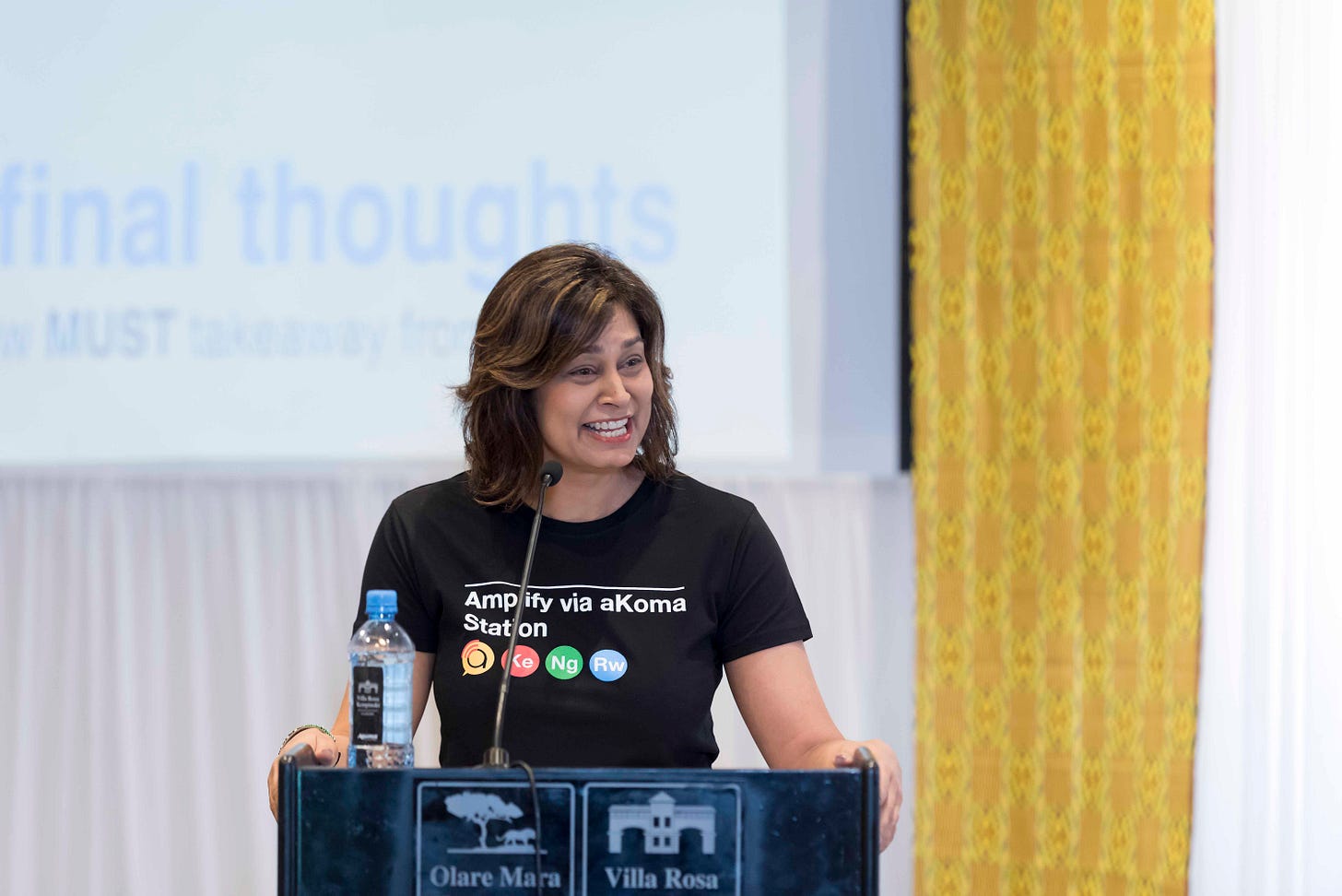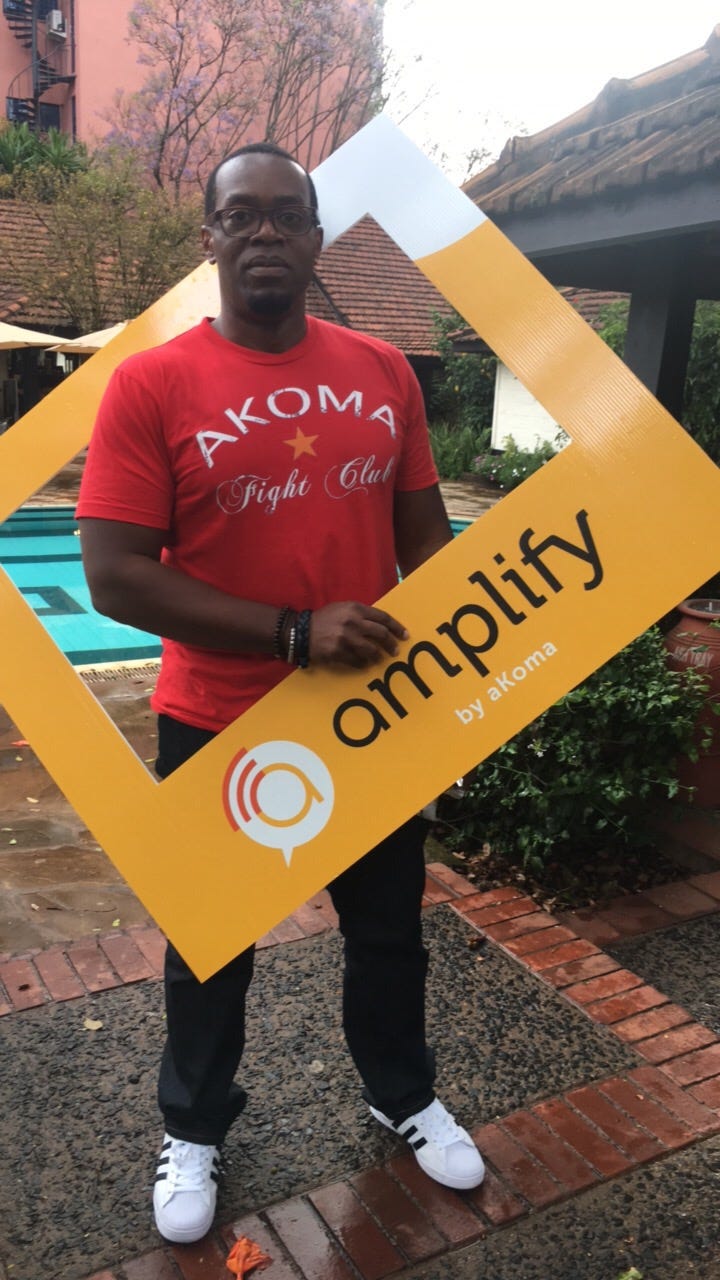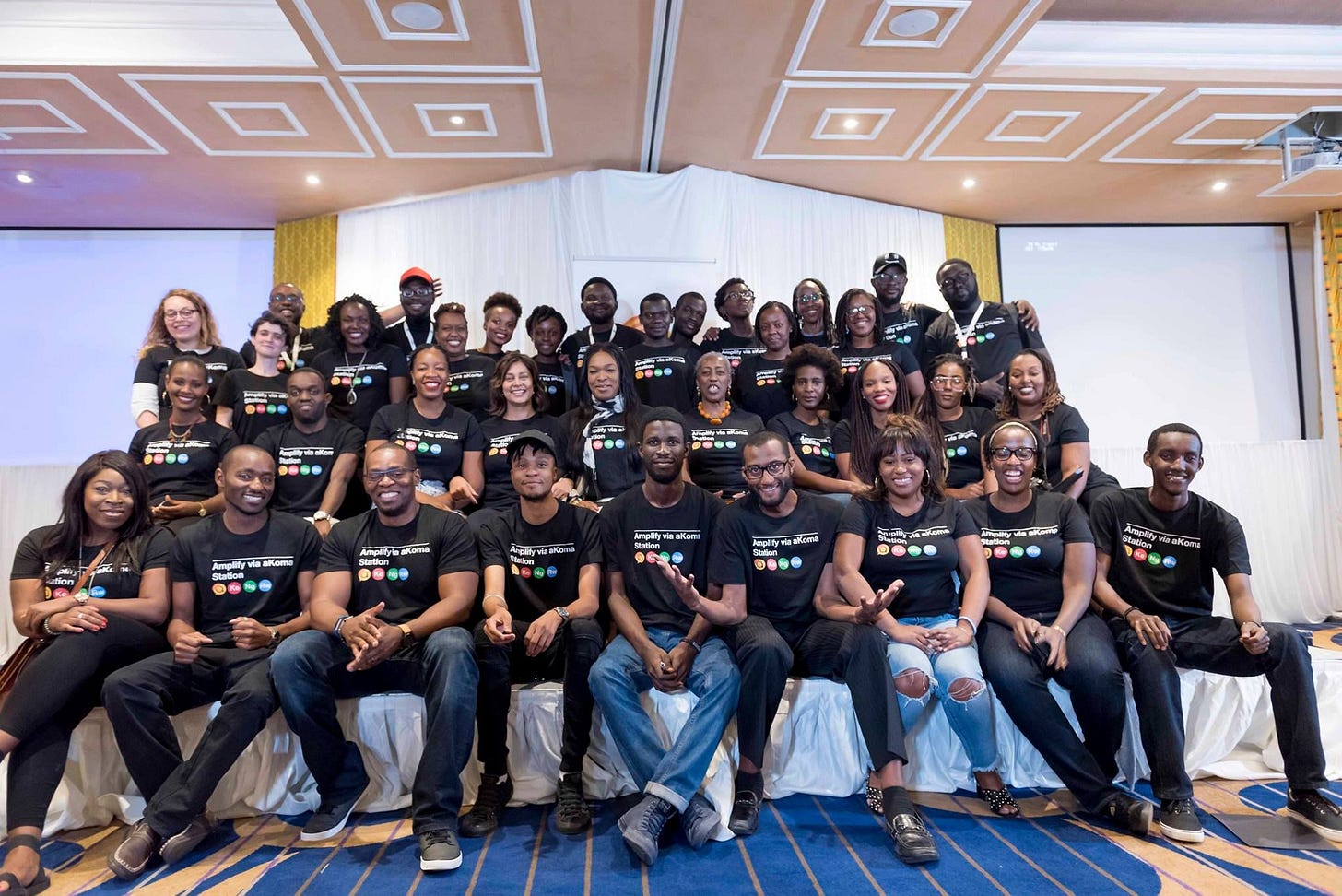A Warning to African Leaders: Do Not Sell Your Data Sets
As a Kenyan, data nationalism is something I am seriously thinking about. We are in the midst of a new type of colonialism in Africa, this time with our data and information at stake.
It’s been almost 10 years since I left CNN and my anchor role. I have spent that time relentlessly arguing, advocating, and insisting that Africa must own its stories, make new markets, and export them to the world. In our own voices, on our own terms. My partner
and I invested a huge amount of blood, sweat, and tears in our start-up (now defunct), aKoma Our message was encapsulated in this TED talk: Why the most important person in Africa is the storyteller.Me, 2016, Nairobi
Our arguments back then were: The African stereotypes must go. The continent is young and massively talented. Invest in the creative and cultural industries of Africa. The ecosystem is powerful and waiting to be unleashed. The business case exists. These views are still valid today. The good news is that there’s far more traction, investment, and clear returns in the African storytelling and creative landscape than there was when we started.
Chidi Afulezi, akoma co-founder and product guy
Old pitch deck
I have evolved my thinking lately to this: The most important person in Africa is the AI-driven storyteller. An understanding of diffusion models, large language models, prompt engineering, generative AI, RAGs, and artificial general intelligence will help shape Africa’s stories in the future. They will determine Africa’s place in the world. The precision of algorithms and the creativity of humans must co-exist.
Amplify by aKoma, First Cohort, Nairobi graduation
Data Nationalism
But what about our data sets? As a Kenyan, data nationalism is something I am seriously thinking about. We are in the midst of a new type of colonialism in Africa, this time with data and information at stake. It goes like this: If you give your data sets away, other countries and corporations will buy them for cheap, reprocess them, and sell them to the world and to yourself for significantly more. Sound familiar?
They will make money off African nations’ citizens’ patterns, facial recognition, demographics, travel behavior, shopping selections, production, and statistics. If our leaders in Africa do not move swiftly, then our nations and nationals will be reduced to products, to being simply cheap, raw data. Foreign entities will be buying your citizenry; details about the roads they drive on, the vessels that come into port, what cars they drive, and what is bought in a supermarket at what times.
Data nationalism refers to the efforts by nation-states to ensure control over data for a range of normative and security-based reasons. It involves initiatives such as data localization, which requires data to be stored or processed within a particular country's borders. This concept has gained attention due to the various regulatory initiatives around the world that promote data control (perplexity AI).
Here is how The Rundown team wants you to think. This is a starting framework for thinking in collaboration with the Canadian Association for Security and Intelligence Studies, Vancouver, and its founder, security expert Candyce Kelshall.
African Leaders Must Consider This
The days of the typical information minister are almost over—the media liaison, the spin doctor, the press conference speaker. That’s a communications role (which is also totally transforming with generative AI).
Create a cabinet secretary responsible for national data
This new role is about securing citizens and your own country from exploitation and theft. This is actually a national and civil defense role to protect a country’s data and store it within its borders. If African corporations and countries sell raw data for cheap, they are selling to another party the ability to understand your citizen’s movements, information on how the country can be shut down, vulnerabilities to electoral interference, and chaos creation. Something as simple as an airport board for airline arrivals and departures could be compromised easily and create chaos. This is warfare.
The national data secretary should have a disinformation unit that can identify fakes and frauds with filters that can detect AI-generated content.
Own your codebase
Do not buy off-the-shelf models and platforms as a nation; invest seriously in building your own AI models. According to Candyce Kelshall, “When we use foreign software to do it, everything goes back to the owner of that company. When you ask foreign experts to come in and advise you and structure data, those experts now have our national data and can give it to their companies. This is how you lose control of national data. What leaders need to do is build their own technology and own their codebase.”
Yes. We know that African nations have these challenges:
Lack of connectivity and internet access
Lack of data centers
Lack of electricity
But anyone who watches, invests in, and engages with this continent of 54 nations knows that, with ongoing investments, this is going to change. Soon. Then it’s game on. African leaders must prepare now, accelerate in-country talent with a view to empowering talent with new modes of telling stories (data sets and tech), and nurture relationships with diaspora tech talent.
At the moment, as the Rundown team is building Wanja, your guide to understanding Africa, we are using retrieval-augmented generation technology (RAG) built on open AI. We are prototyping this and testing chunking methods and the coherence of retrieval. Thomas (the Rundown co-founder) and I could also build on Anthropic. Or on Gemini. None are African. And so whatever data I may own now lives on a western platform. Give me an African option.
Wanja AI, In Private Beta
Establish a national education program
People must understand the importance of securing personal data on the continent. We are willingly giving something up that is part of the inherent value of the country. Again, like colonization, we will sell raw information for cheap and buy it back at a price after it has been processed, when it was your data to begin with.We will need to invest in national training programs so our young talent can immerse, evolve, and invest in technologies that are home-grown and owned.
The Most Important Person In Africa
The most important person in Africa is the AI storyteller. It is the storyteller who can understand new technologies, innovate in a manner that will seize the stories of the future, and ensure the strength of our voices not just in photos, videos, anniversaries, and podcasts but also in algorithms.
African leaders must invest in this type of storytelling talent. It will let us thrive in the new data-set game.
Support the Rundown by becoming a paid subscriber. Your support lets us build a modern media academy that we are bootstrapping. Your support helps me stay energized and maintain a blue sky for ideas that strengthen communications with ethics, particularly with a focus on empowering African talent.
The Rundown courses and tips on the go are coming soon.










